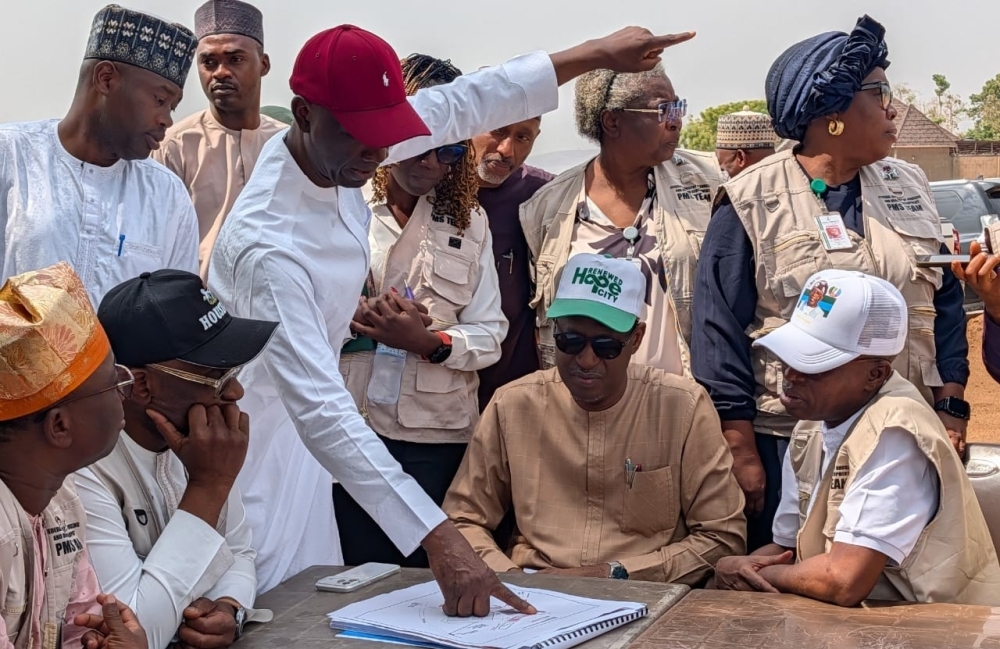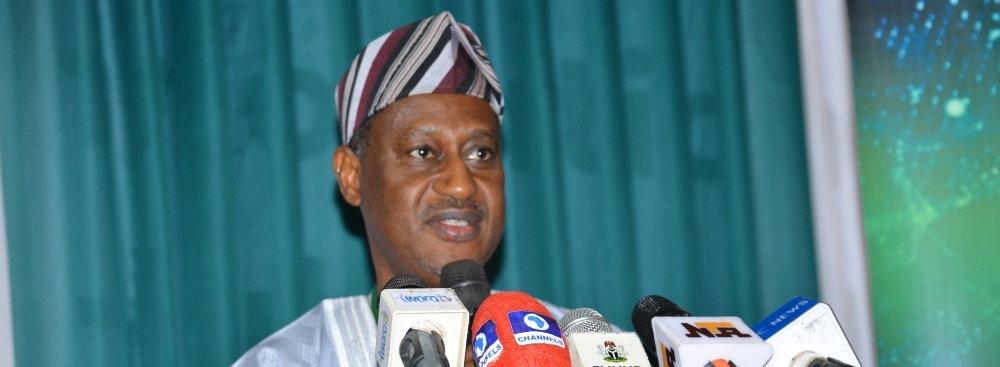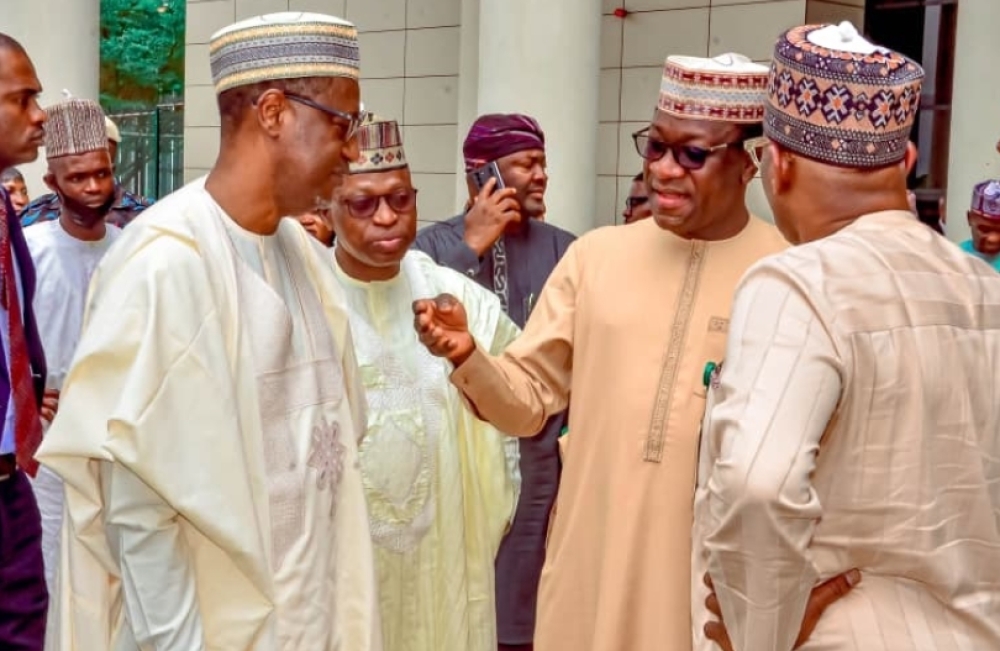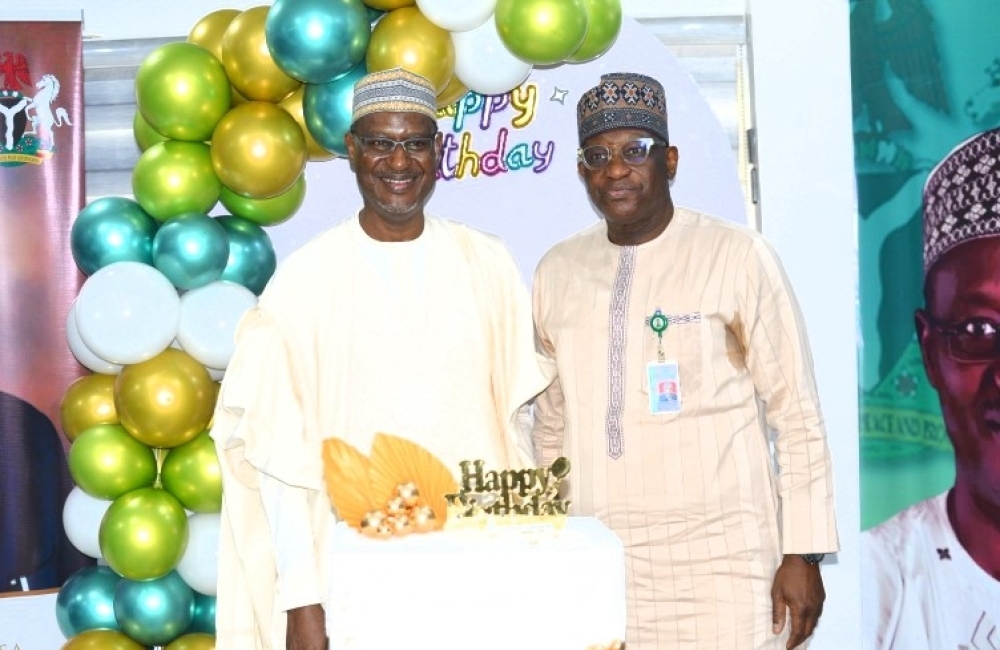ADDRESS BY THE HONOURABLE MINISTER OF HOUSING AND URBAN DEVELOPMENT AT THE 14TH MEETING OF THE NATIONAL COUNCIL ON LANDS, HOUSING AND URBAN DEVELOPMENT ILORIN, KWARA STATE
Theme: Achieving Housing Delivery and Sustainable Cities through Effective Land Management, Urban Renewal, Promotion of Local Building Materials, and Public-Private Partnerships in Nigeria
Your Excellency, the Executive Governor of Kwara State, Malam AbdulRahman AbdulRazaq
Distinguished Chairmen of the Senate and House Committees,
Hon. Minister of State for Housing and Urban, Rt. Hon. Abdullahi Ata
Honourable Commissioners,
Permanent Secretaries,
Directors and Heads of Agencies,
Development Partners,
Professional bodies
Private Sector Leaders,
Ladies and Gentlemen,
1. It gives me great pleasure to be here in Ilorin for the 14th Meeting of the National Council on Lands, Housing and Urban Development.
2. Let me begin by warmly thanking His Excellency, the Executive Governor of Kwara State, Mallam AbdulRahman AbdulRazaq, and the good people of Kwara State for the excellent hosting and the hospitality extended to us.
3. Before I go into my remarks, let me first appreciate the valuable goodwill messages and presentations we have heard this morning. They have strengthened the discussion and brought fresh, practical perspectives to the theme of this Council.
4. I thank our Distinguished Members of the National Assembly, Honourable Commissioners, and our development partners for your thoughtful remarks.
5. I was particularly encouraged by the presentation on Financing Housing Delivery and Sustainable Cities in Nigeria: The Role of Development Finance and Public-Private Partnerships by Shelter Afrique Development Bank. It reminded us that government budgets, by themselves, cannot deliver housing at the scale Nigeria needs. What we must do—deliberately and consistently—is to mobilise long-term capital through development finance institutions, private investors, and structured PPPs, backed by clear policies, credible institutions, and bankable project pipelines.
6. I also want to expand on the presentation on the National Homeownership and Housing Development Campaign by KTNN, because it is particularly strategic and timely.
7. This Campaign reflects our commitment as a Ministry to leading a Unified and Coordinated Approach to Subnational Housing Development, working closely with State Governments so that Federal programmes, reforms, finance opportunities and private capital are translated into real, visible, deliverable projects at the State level.
8. In this regard, I want to use this platform to call on all stakeholders—Governors, Commissioners, Permanent Secretaries, housing institutions, developers, financiers, and professionals—to actively support and participate in the Campaign, which will be flagged off in Katsina State from 4th to 5th March, 2026.
9. Finally, I commend the presentation on Enhancing Housing Adequacy through the National Housing Data Programme. One of the biggest gaps in our sector has been the absence of reliable, centralised, and actionable housing data. Without data, planning becomes guesswork; investment becomes speculative; and tracking progress becomes difficult.
10. Taken together, these presentations reinforce a simple message: the solutions already exist; what we need now is stronger coordination, deeper commitment, and disciplined implementation.
11. It is against this background that I will now share my thoughts on the theme of this year’s Council Meeting.
LAND ADMINISTRATION AS THE FOUNDATION
12. As we all may be aware, No country can solve its housing challenge without fixing its land system. In Nigeria, land remains one of our greatest assets—yet it is also one of our biggest constraints. Lenghty titling processes, fragmented land records, high transaction costs, and weak planning controls continue to slow down housing delivery and discourage serious investment.
13. This is why land reform remain central to our agenda through the National Land Titling, Registration and Documentation Programme (Land4Growth). Our focus is to work with State Governments towards:
• Accelerating land registration, documentation and titling;
• Supporting States to digitise land records and modernise registries; and
• Reducing the time and cost of securing legal title.
14. In 2025, we secured strong national stakeholder buy-in through high-level engagements held in Abuja and Lagos. This includes a national stakeholders’ forum and targeted consultations with state governments, professional bodies, and development partners. We further deepened implementation readiness through dedicated World Bank missions to Kaduna, Kano, and Niger States. We also held a the Conference of Directors of Lands, which focused specifically on the Land4Growth’s implementation mission.
15. In the area of service delivery, our work continues to translate policy into practical outcomes. Over the past year, the Ministry processed and signed 1,743 Certificates of Occupancy, approved 345 secondary transactions, including mortgages and consents, and concluded 32 valuation approvals across the Federation.
16. In summary, secure land titles reduce risk, unlock capital, and empower citizens. I therefore urge all States to treat land reform not as a routine administrative matter, but as a deliberate economic growth strategy that will increase IGR, empower citizens and grow GDP.
URBAN RENEWAL AS A KEY STRATEGY
17. Nigeria is urbanising rapidly—often faster than planning and infrastructure can keep up. This is why urban renewal is not optional.
18. Our approach to urban renewal focuses on upgrading neighbourhoods, improving infrastructure, regularising tenure where possible, and creating safer, healthier, more productive communities.
19. Through the National Urban Renewal and Slum Upgrade Programme, we have already delivered over 240 projects nationwide with over 100 more ongoing at various stages of completion.
PROMOTING LOCAL BUILDING MATERIALS
20. One of the biggest drivers of housing unaffordability in Nigeria today is our heavy dependence on imported building materials and components.
21. In this regard, the Ministry has also made progress on the Building Materials Manufacturing Hubs. This is a critical intervention aimed at reducing construction costs, deepening local manufacturing, and strengthening housing value chains. We have secured an Outline Business Case (OBC) Compliance Certificate from ICRC for the Lekki Free Trade Zone hub. This represents a a major regulatory milestone. We have also engaged consultants to prepare bidding and concession documents for hubs in the remaining five geo-political zones.
22. When we build with local materials, we lower costs, stabilise prices, expand employment, and deepen national economic resilience.
PUBLIC-PRIVATE PARTNERSHIPS: FROM POLICY TO PROJECTS
23. In 2025, the Ministry made significant progress across major Renewed Hope City projects in Karsana, Abuja; Ibeju-Lekki, Lagos; and Kano, with several phases reaching commissioning readiness and active house sales already underway. This progress demonstrates our growing capacity to structure, supervise, and de-risk large-scale PPP housing developments, mobilise private capital, and translate government policy into market-ready projects that are delivering real homes for Nigerians.
24. But PPPs only work when there is clarity, transparency, and timely decision-making. This Council must therefore continue to strengthen trust, capacity, and coordination across all levels of government.
FEDERAL COORDINATION AND DELIVERY ARCHITECTURE
25. Your Excellency, Distinguished ladies and gentlemen, as you are aware, the Federal Ministry of Housing and Urban Development is designated as the Coordinating Ministry for housing, land, and urban development in Nigeria.
26. In this role, the Ministry provides national leadership by:
• Setting policy direction for housing delivery, urban renewal, and land reform;
• Coordinating the activities and programmes of Federal Housing Institutions;
• Aligning housing and urban development initiatives with the Renewed Hope Agenda of the Federal Government;
• Leading engagement with Development Finance Institutions and private capital providers; and
• Establishing clear standards, delivery frameworks, and implementation guidelines to support housing delivery at scale.
27. To support this role, Nigeria operates a defined Federal delivery and financing architecture, comprising:
• The Federal Mortgage Bank of Nigeria (FMBN), providing affordable mortgage products, NHF-linked financing, and rent-to-own schemes all at single digit interest rates and up to 30-years;
• The Federal Housing Authority (FHA), serving as master developer, PPP structurer, and estate delivery partner;
• The Nigeria Mortgage Refinance Company (NMRC), enabling long-term mortgage refinancing and market liquidity;
• The MOFI Real Estate Investment Fund (MREIF), mobilising concessional capital for housing/mortgage development; and
• Family Homes Funds Limited (FHFL), delivering social and affordable housing targeted at low-income Nigerians.
28. As part of the Renewed Hope Agenda of His Excellency, President Bola Ahmed Tinubu, GCFR, our Strategic Plan in 2026 is to strengthen coordination across these institutions.
29. This is to ensure that they operate not in silos, but as One Coherent National Housing Delivery System, working in direct support of State-level implementation.
30. To translate this coordinated Federal system into tangible outcomes at the subnational level, we have developed a Unified Housing Delivery Framework that enables structured State participation, scale, and impact.
31. The objective of this Framework is clear:
to ensure that the Ministry and all Federal Housing Institutions operate as One Government, with complementary and clearly defined roles, while providing State and Local Governments with a predictable, credible framework for collaboration on housing delivery.
32. This is particularly important at a time when many States are experiencing improved fiscal capacity and requiring structured ways to work with the Federal Government to deliver housing at scale.
33. Under this Framework, State Governments are to participate as active counterparts across four flagship Federal programmes.
34. First is the Renewed Hope Housing Programme. Under this Programme, States are encouraged to scale housing delivery beyond the Federal baseline of 250 housing units per site.
Participating States are expected to:
• Commit land and supporting infrastructure; and
• Make budgetary provision to deliver at least 1,000 housing units per annum, in complement to Federal delivery.
In return, the Federal Government mobilises Federal Housing Institutions to support State Housing delivery, including:
• FMBN and MREIF, to provide single-digit, long-term off-take mortgages and equity support;
• NMRC, to provide mortgage refinancing and improve affordability; and
• FHA, to provide technical, project structuring, and delivery support where required.
In addition, the Ministry is ready to work with States that wish to develop Renewed Hope Cities—large-scale, mixed-use urban developments—by leveraging private sector capital through PPPs, supported by appropriate State Guarantees and enabling frameworks.
Under this city-scale model, the Federal Government will mobilise institutions such as Family Homes Funds Limited, NSIA, and InfraCredit to support States in structuring sustainable financing frameworks, crowding in long-term capital, and ensuring that these cities are financially viable, inclusive, and resilient.
35. Second is State-Led Social Housing Programme
The State-Led Social Housing Programme is designed as a structured State counterpart to the National Social Housing Programme, under which the Federal Government is already working to deliver a baseline of 100 housing units in each Local Government Area of the Federation.
Under this Programme, our expectation is clear and practical:
State Governments, working in collaboration with Local Governments, are encouraged to commit to the delivery of at least 50 social housing units in each Local Government Area. This would serve as a counterpart contribution to the national effort to expand access to decent and affordable housing for low-income and vulnerable Nigerians.
This approach ensures that social housing delivery is:
• Locally driven, reflecting community needs;
• Scalable, moving beyond isolated pilot projects; and
• Deeply impactful, with direct benefits at the grassroots level.
To support State and Local Government participation, the Federal Government will:
• Mobilise Family Homes Funds Limited (FHFL) as an enabling agency leveraging its already established links with DFIs;
• Deploy FMBN products, including NHF-linked/cooperative and rent-to-own financing, to support affordability and off-take; and
• Facilitate access to concessional DFI financing to reduce costs and ensure long-term sustainability.
Through this partnership model, social housing becomes a shared Federal–State–Local Government responsibility, delivering visible impact, supporting poverty reduction, and strengthening social stability.
36. The third component is the State Urban Renewal and Inner-City Regeneration Programme. The State Urban Renewal and Inner-City Regeneration Programme is designed as a structured State counterpart to the National Urban Renewal and Slum Upgrade Programme, under which the Federal Government is already upgrading deteriorating urban areas and slums nationwide.
Under this Programme:
• States lead land assembly, infrastructure provision, and resettlement where required;
• FMHUD provides the national framework, standards, and coordination;
• DFIs provide long-term finance and guarantees; and
• Private sector partners undertake redevelopment, construction, and asset management.
This Programme enables States to transform aging estates and congested inner cities into modern, mixed-use, liveable districts that improve quality of life, increase land and property values, and expand Internally Generated Revenue.
37. Fourth is the State Housing PPP and Investment Platform
This Programme encourages State Governments to establish a State Housing PPP and Investment Platform with the capacity to build housing investment pipelines per State over time.
The platform will be supported by:
• FMHUD to ensure coordination and investor confidence;
• DFIs to ensure provision of long-term debt and guarantees
Conclusion
38. Your Excellency, Distinguished colleagues, this Unified Framework represents a deliberate shift—from fragmented interventions to coordinated national delivery.
39. The Federal Government provides leadership, institutions, and finance. States provide land and subsidies, execution, and local leadership and counterpart or additional budgetary funding or interventions to complement federal effort.
40. Together, we all work in partnership with our partners to deliver homes, renew cities, and unlock growth.
41. Thank you, and I wish us productive deliberations and actionable outcomes.















